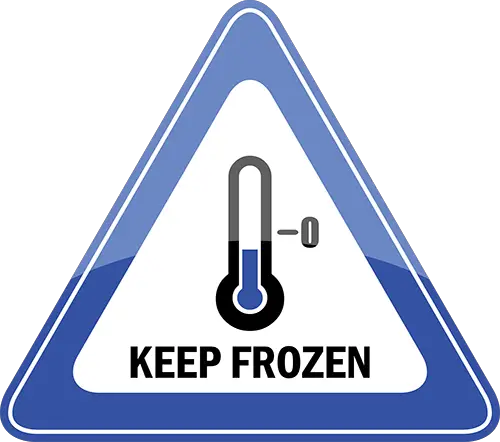Can You Freeze Baby Formula? (Explained)
One of the most difficult full-time jobs in the world is being a mom, especially if you’re a busy mom who tries to find ways that will save her both time and energy, and freezing your baby’s formula is definitely one way to serve your baby with a nutritious meal quickly.
But should you really freeze baby formula?
The Food and Drug Administration (FDA) recommends against freezing prepared and powdered baby formula as there are risks involved due to the separation of the ingredients and a chance of high concentrations of iron. There are, however, some advantages to freezing formula for both moms and babies.
In this article, I’m breaking down everything you need to know about freezing baby formula, its pros, and cons, and how to ‘safely’ do it. So, without further ado, let’s get started!
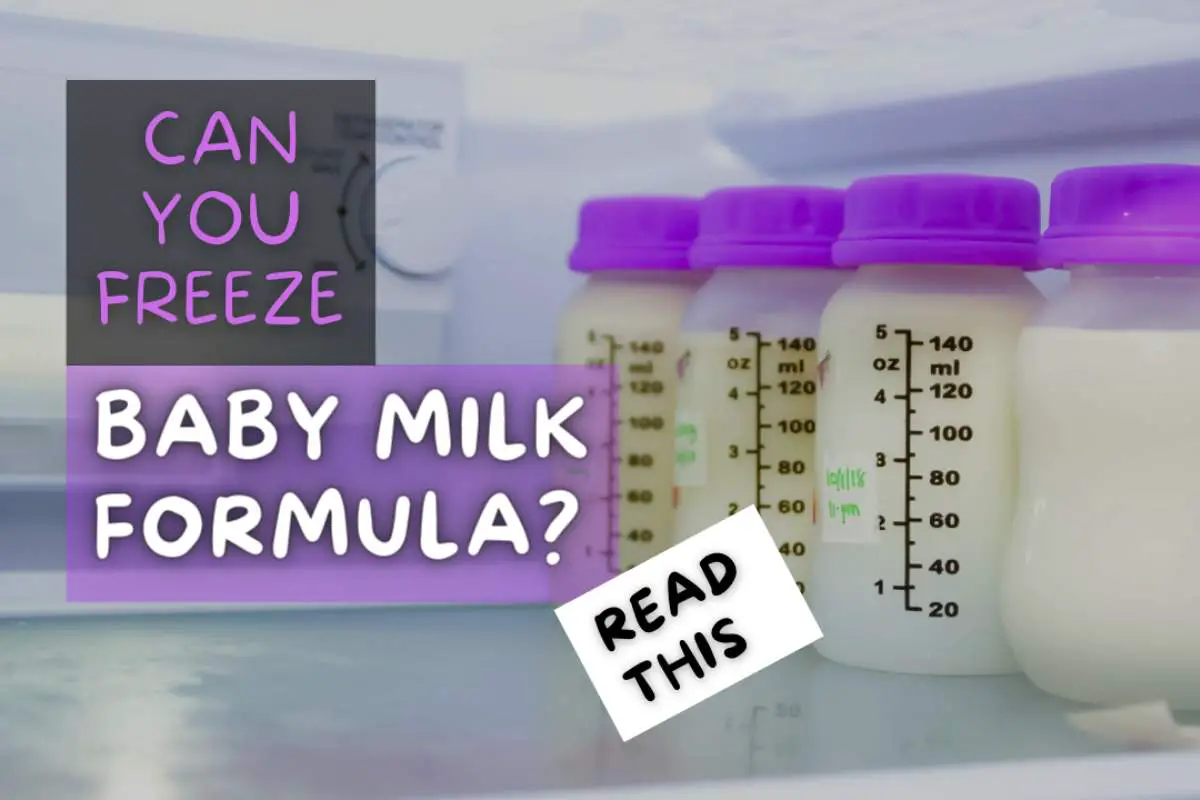
Risks of Freezing Formula
To start with, it’s important to note that the freezing of baby formula raises a number of safety and health concerns.
The formula’s properties can change by freezing, increasing the likelihood of clumping, and possibly containing highly concentrated levels of iron that are unsafe for a baby to consume. Freezing baby formula can also change both its texture and flavor.
The Food and Drug Administration (FDA) advises against it because it may cause the ingredients to separate. It is not advised to freeze the formula, particularly if it has been prepared from a powder.
(Additionally, you want to ensure that unprepared powdered formula is disposed of in accordance with the expiration date printed on the packaging.)
Also, you may want to consider that in many cases, it’s quicker and easier to mix up or prepare bottles for the next few feedings and keep them in the fridge. It will be much faster to warm these bottles up compared to thawing a completely frozen bottle of formula.
Refrigerate Formula Instead of Freezing (In Most Cases)
It is generally advised to pick the coldest spot in your fridge to store baby formula, preferably in the back. The ideal storage temperature for it is 39°F.
Instead of completely freezing the formula, it is better to be kept just cool. It is not safe to leave it at room temperature since it can encourage germs and bacteria to grow.
You also don’t want to warm it unless the baby is going to drink it right away. Also, reusing baby formula that your baby hasn’t consumed can be unsafe.
Any food that remains after 1 hour should be thrown away since the chance of bacterial growth rises.
Advantages of Freezing Formula
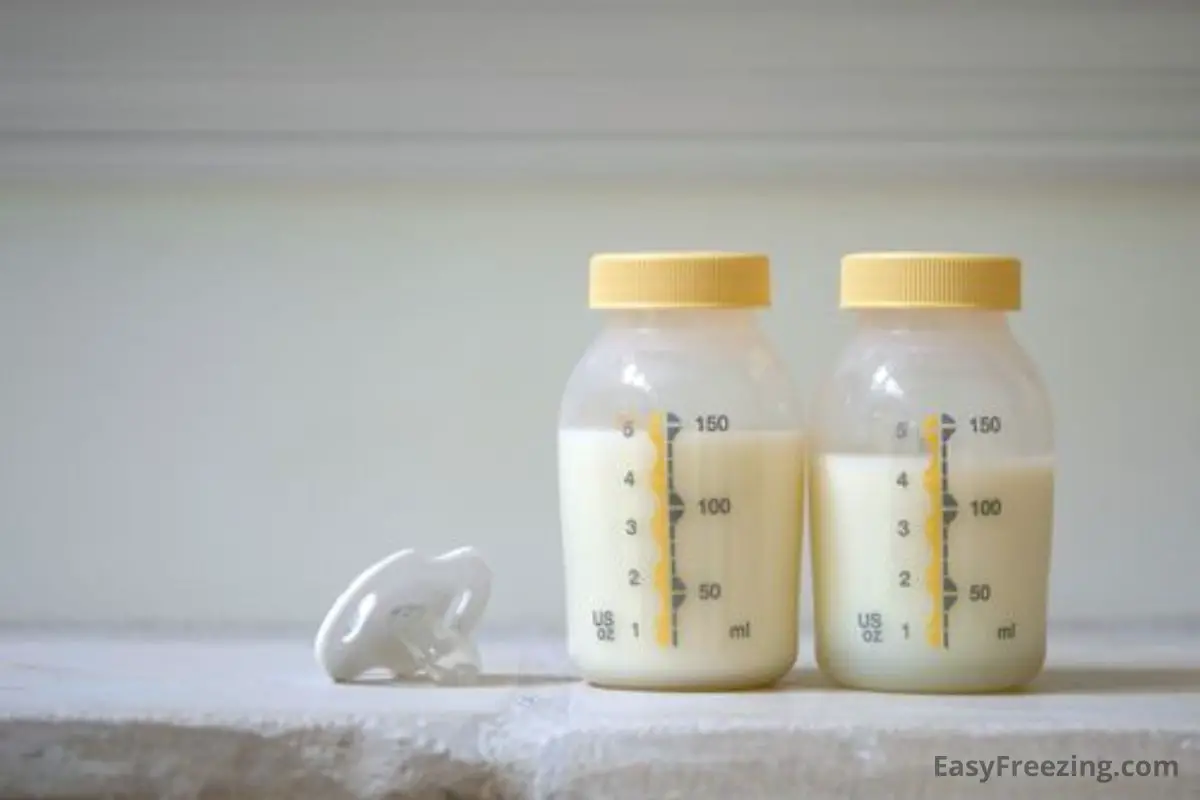
While freezing formula can have some risks, many moms still choose this method for multiple reasons.
Frozen baby formula has a variety of benefits. The top one is that freezing preserves meals for the baby to consume later. Freezing baby formula is also hassle-free and does not take much time to do.
Freezing formula can also be used to prepare delicious popsicles for the baby. Frozen formula popsicles are particularly well-liked by infants who already enjoy pacifiers, which are a convenient alternative to breast milksicles.
You can also freeze formula into teethers that are freezer friendly to both soothe the angry gum of your teething baby and sneak in some nutritious food while you’re at it.
Another advantage of frozen formula is that it is super practical when you’re traveling with your baby, as it will last for a longer time compared to refrigerated formula.
All you need to do is to put the container of your frozen formula into an insulated bag or a cooler with some ice or a freezer pack.
You can also use frozen formula cubes to thin nutritious purees. The frozen formula is generally easy to take out of the freezer whenever the baby needs a meal.
How to Freeze Formula
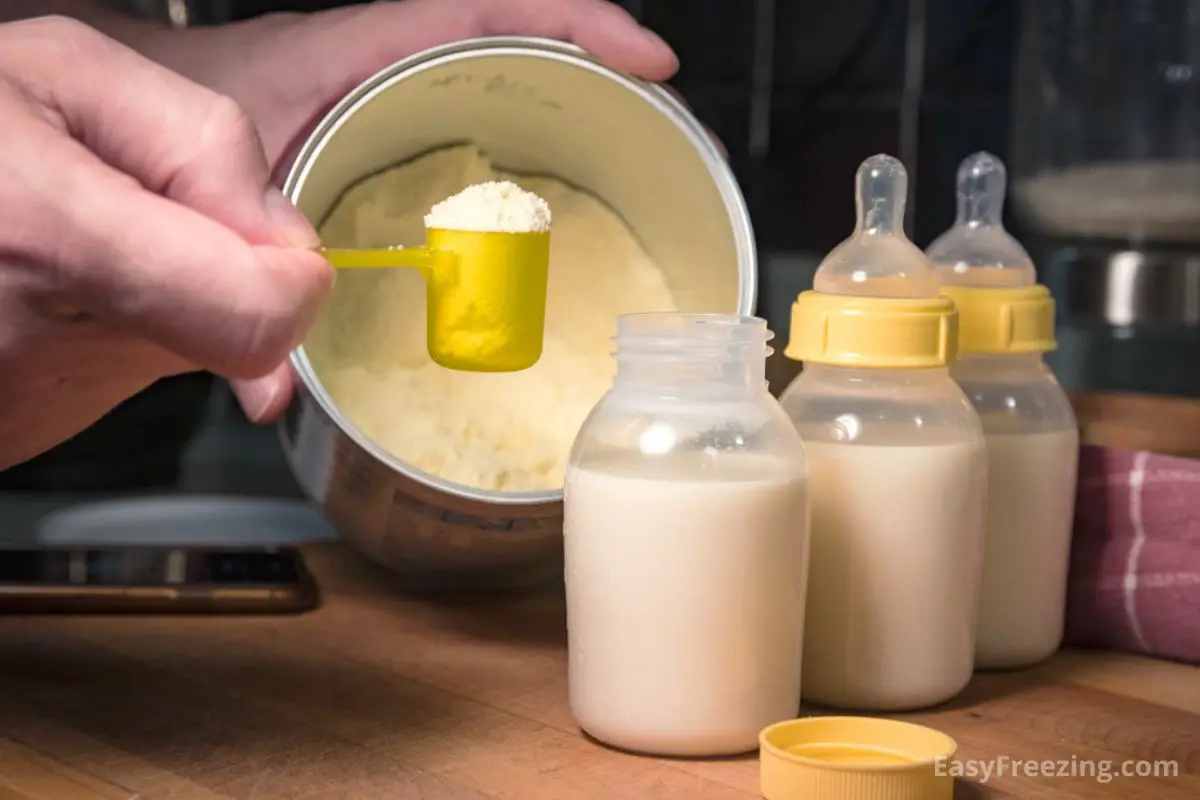
If you still plan on freezing baby formula, you should at least minimize the possible risks by doing it properly.
Here are the steps you need to follow if you want to freeze formula as safely as possible:
- Use warm water and soap to wash your hands for at least 20 seconds.
- Decide how much formula you want to freeze.
- Prepare the formula following the preparation instructions on the can.
- Get a storage container, freezer bag, or bottle that is freezer-safe, and make sure it is carefully sanitized.
- Make sure the measuring cup you’re using is sanitized first, and the water source is safe. Then start measuring the formula and water.
- In your freezer-safe container, mix the formula with water. If your container is closed, you can just give everything a good shake.
- Label the container with the date of preparation.
- Place the container in the freezer.
How To Thaw Formula
The best way to thaw frozen formula is to defrost it slowly in the refrigerator. You can also run frozen formula under warm water. However, if you use this method, it is important to use the formula within one hour of it reaching room temperature.
Once the formula is thawed, be sure to shake it extremely well to remix any separation that has occurred and avoid concentrations of iron in one spot.
How Long Does Formula Last in the Freezer?
Since it is not recommended to freeze formula, I can’t tell you exactly how long it can last in the freezer. It is always recommended to use the formula as soon as possible before its properties change.
If you’re unsure, ask your pediatrician for advice.
Can You Freeze Breastmilk?
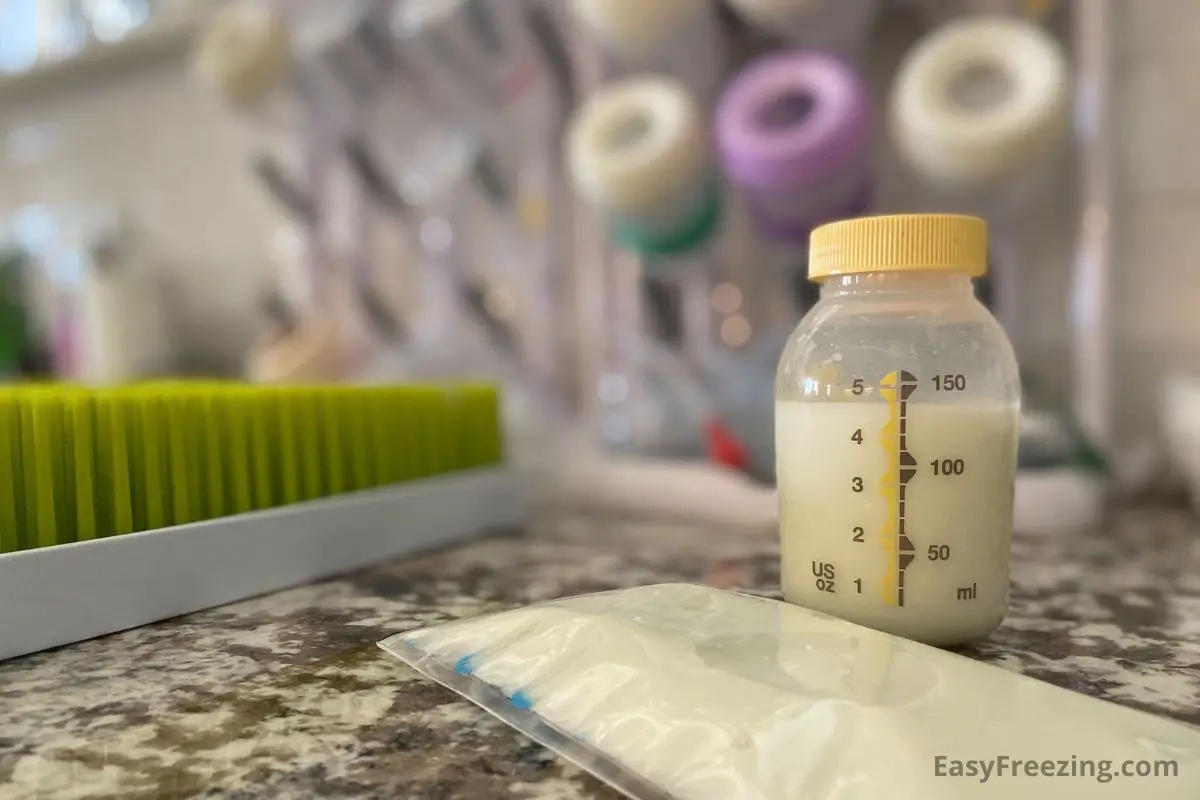
Whether it is powdered or prepared formula, it is not advisable to freeze baby formula.
However, freezing is widely seen as a good way to store breastmilk, and breastmilk and formula can be mixed together.
If you intend to freeze both breastmilk and formula together, start by preparing the baby formula and then add the breast milk. You can then proceed to the freezing process.
If you choose to freeze breastmilk with formula, there is one important thing to keep in mind – if your baby does not finish the whole amount you serve to them, the breast milk will go to waste.
You can safely freeze breast milk alone in your freezer to take it out when the baby needs it. When freezing breast milk, make sure to get the right bag or container.
Due to the high water content, breast milk expands in the freezer, so you don’t want to completely fill the bag or container.
Breast milk should be frozen in small portions of 2 ounces each to allow the milk to thaw quickly and prevent unnecessary waste. It is recommended to use frozen breast milk within 6-12 months.
This is basically it when it comes to freezing baby formula—it’s not the safest option, but it could be an alternative when you run out of time as a busy mom. However, it’s best not to make a habit of it.
Can You Freeze Baby Formula – Conclusion
So now you know that freezing baby formula is not recommended in most cases. Freezing formula, however, does have occasional benefits, such as keeping the formula extra cold during long trips.
